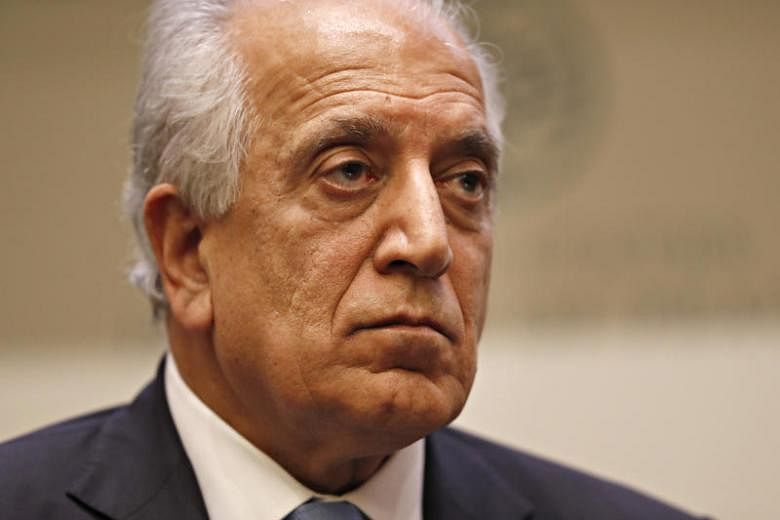ISLAMABAD (AP) - The Taleban have given the US envoy a document outlining their offer for a temporary ceasefire in Afghanistan that would last between seven and 10 days, Taleban officials familiar with the negotiations said Thursday (Jan 16).
The offer is seen as an opportunity to open a window to an eventual peace deal for Afghanistan that would allow the United States to bring home its troops and end the 18-year war, America's longest conflict.
The ceasefire offer was handed to Mr Zalmay Khalilzad, Washington's envoy for talks with the insurgents, late on Wednesday in Qatar, a Gulf Arab country where the Taleban maintain a political office.
Mr Khalilzad has been pressing for a ceasefire but it wasn't immediately clear whether the Taleban proposal would be enough to allow for the on-again off-again talks between the Taleban and the US to restart, with the aim of eventually signing a peace deal.
Previously, Mr Khalilzad said a US-Taleban deal would also include the start of negotiations among Afghans on both sides of the conflict to hammer out a so-called road map to a post-war Afghanistan.
That road map would tackle thorny issues such as a permanent ceasefire, women's and minority rights, and the fate of thousands of Taleban fighters and also militias loyal to Kabul's warlords.
But the Taleban have been refusing to talk with the Kabul government of Afghan President Ashraf Ghani and Chief Executive Abdullah Abdullah.
The two are currently fighting over who won last year's presidential elections. The initial vote count gave Mr Ghani the win but Mr Abdullah, who came in second, is contesting the count. A final outcome has yet to be announced by Afghanistan's election commission.
Last September, the Taleban and the US appeared close to signing a deal when an upsurge in Taleban attacks, including the killing of another US soldier, prompted US President Donald Trump to scrap the talks.
On Thanksgiving, during his first visit to US troops in Afghanistan, Mr Trump softened his stance, saying the Taleban were ready to make a deal, though both Kabul and Washington insisted the Taleban would have to show a sign of good faith by reducing their attacks.
In December, the Taleban leadership headquartered in Pakistan agreed to put forth a temporary ceasefire offer.
A Taleban official said that mistrust has long characterised the US-Taleban talks and that the insurgents hesitated to offer a more permanent ceasefire without having US troops pull out first.
Should the truce deal fall, returning Taleban fighters to the battlefield with the same intensity could be a problem, the official said.
"There was a thinking within the Taleban ranks that it would be difficult for them to reorganise fighters after a break in fighting," said the official, speaking on condition of anonymity to discuss the talks.
Taleban fighters were also unwilling to lay down their arms, "thinking it's their fighting that's forcing the US to come to the table," he said.
The Taleban today control around half of Afghanistan and continue to stage near-daily attacks targeting Afghan and US forces, Afghan government officials or those seen as loyal to the Kabul administration but many civilians are also dying in the crossfire of the insurgent attacks, as well as in operations against the Taleban carried out by Afghan and US forces.

